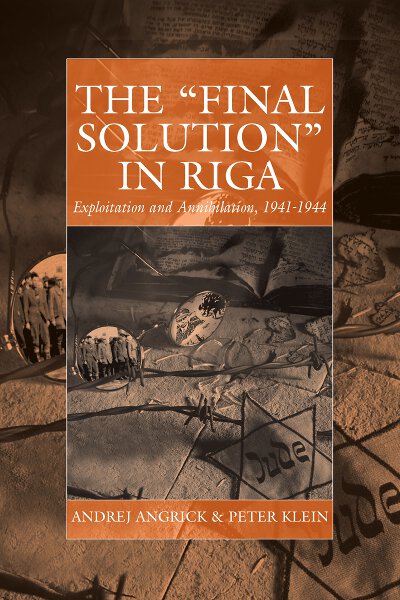
Email Newsletters
Sign up for our email newsletters to get customized updates on new Berghahn publications.
Forced Labor for Siemens in the Women’s Concentration Camp Ravensbrück
Reports from Contemporary Witnesses
Edited by International Friends Association of the Ravensbrück Memorial
Selected and introduced by Janna Lölke
Translated by William Templer
354 pages, 66 ills., bibliog., index
ISBN 978-1-83695-442-2 $135.00/£104.00 / Hb / Published (March 2026)
eISBN 978-1-83695-441-5 eBook
Reviews
“I hope that this book, following the success of the previous german an italian edition, will also be widely read by English-speaking audiences, contributing to awareness of the exploitation of female forced labor within Siemens at Ravensbrück and the industrial history of Nazi Germany. It will also help to pass on this knowledge to future generations.” • Ambra Laurenzi, President of the International Ravensbrück Committee
Description
From August 1942 to April 1945, Siemens & Halske AG maintained its own so-called production facility adjacent to the Ravensbrück women's concentration camp, where up to 2,300 female prisoners were deployed in forced labor. This volume contains excerpts from letters, witness statements, arrest reports, diaries, compensation claims, autobiographies and interviews from Ravensbrück survivors who were forced to work in the armaments factory. The texts shed light on the system of forced labor in the context of the concentration camp, questions of discouragement and hope as well as the women's will for self-assertion and resistance
The International Friends Association (IFK) supports and promotes the work of the Ravensbrück Memorial. The Association cultivates contacts to survivors and their relatives, restores and manages artefacts relating to Ravensbrück, and is committed to the preservation of the site, which was the largest women’s concentration camp in Germany. To this end, the IFK invites the participation of all people, irrespective of nationality, who share our view that memory is indispensable for understanding both our history and our present, and is important in shaping our future.
Subject: Genocide HistoryJewish StudiesHistory: World War II
Area: Germany
Contents
Download ToC (PDF)



